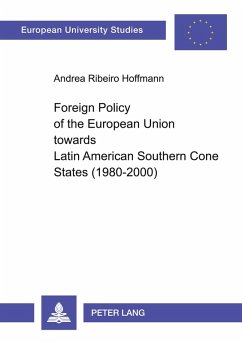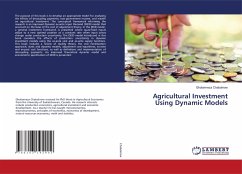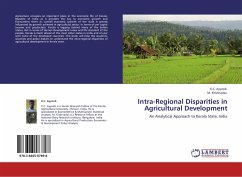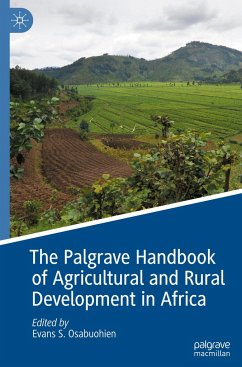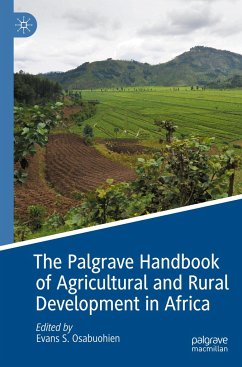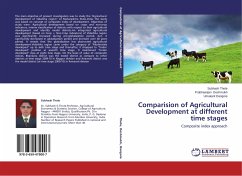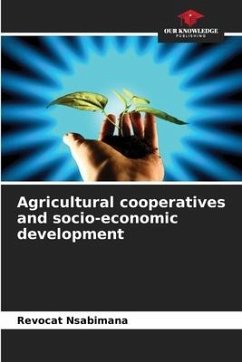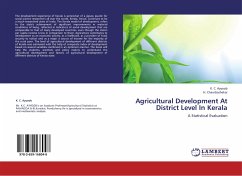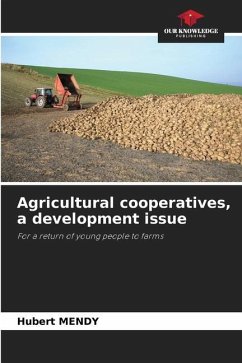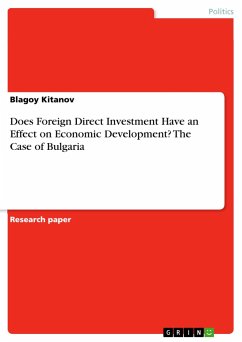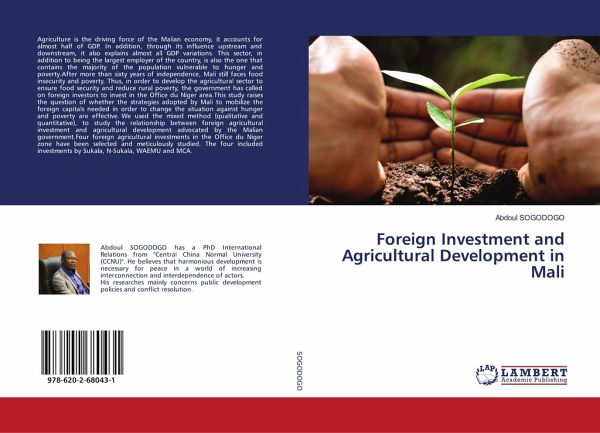
Foreign Investment and Agricultural Development in Mali
Versandkostenfrei!
Versandfertig in 1-2 Wochen
41,99 €
inkl. MwSt.

PAYBACK Punkte
21 °P sammeln!
Agriculture is the driving force of the Malian economy, it accounts for almost half of GDP. In addition, through its influence upstream and downstream, it also explains almost all GDP variations. This sector, in addition to being the largest employer of the country, is also the one that contains the majority of the population vulnerable to hunger and poverty.After more than sixty years of independence, Mali still faces food insecurity and poverty. Thus, in order to develop the agricultural sector to ensure food security and reduce rural poverty, the government has called on foreign investors t...
Agriculture is the driving force of the Malian economy, it accounts for almost half of GDP. In addition, through its influence upstream and downstream, it also explains almost all GDP variations. This sector, in addition to being the largest employer of the country, is also the one that contains the majority of the population vulnerable to hunger and poverty.After more than sixty years of independence, Mali still faces food insecurity and poverty. Thus, in order to develop the agricultural sector to ensure food security and reduce rural poverty, the government has called on foreign investors to invest in the Office du Niger area.This study raises the question of whether the strategies adopted by Mali to mobilize the foreign capitals needed in order to change the situation against hunger and poverty are effective. We used the mixed method (qualitative and quantitative), to study the relationship between foreign agricultural investment and agricultural development advocated by the Malian government.Four foreign agricultural investments in the Office du Niger zone have been selected and meticulously studied. The four included investments by Sukala, N-Sukala, WAEMU and MCA.



